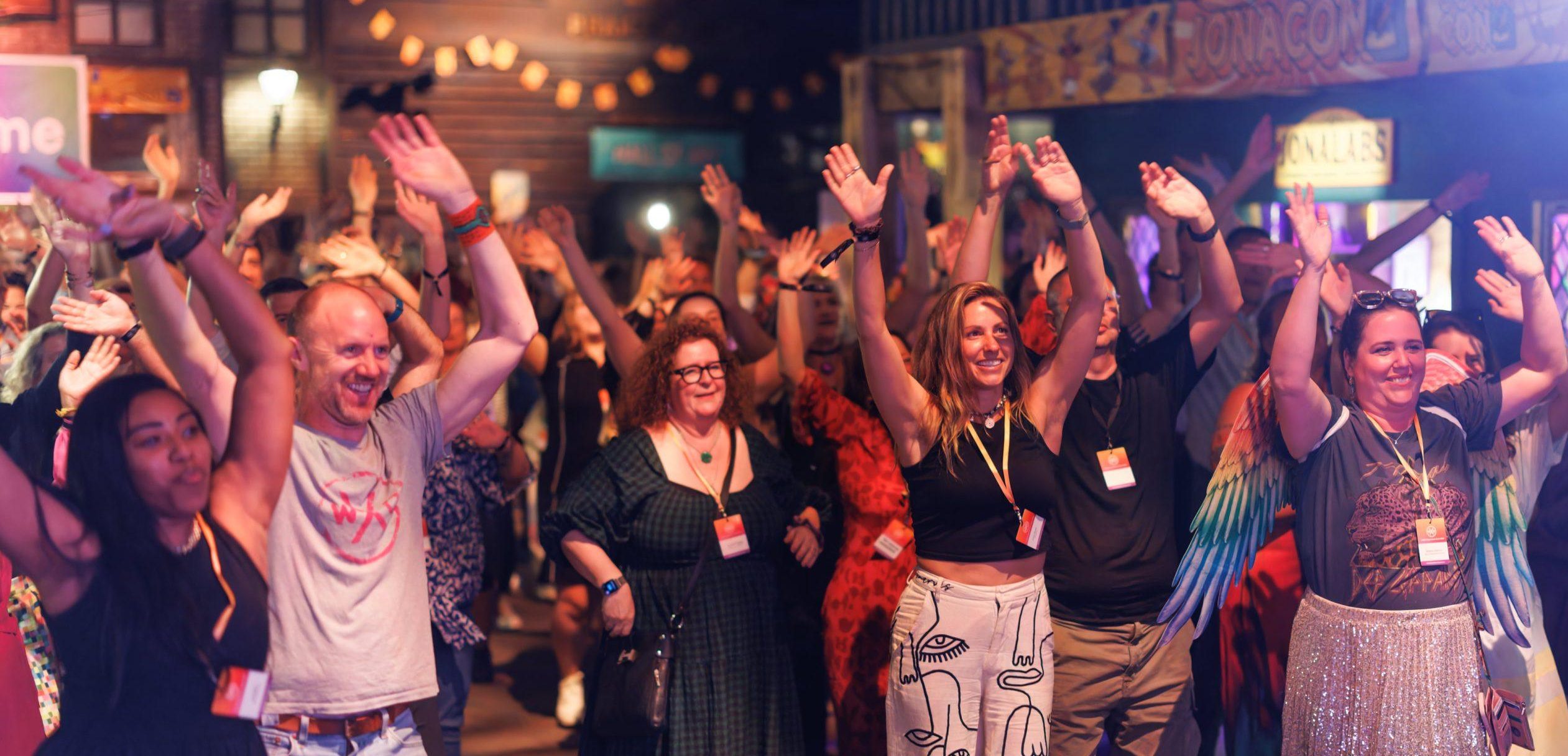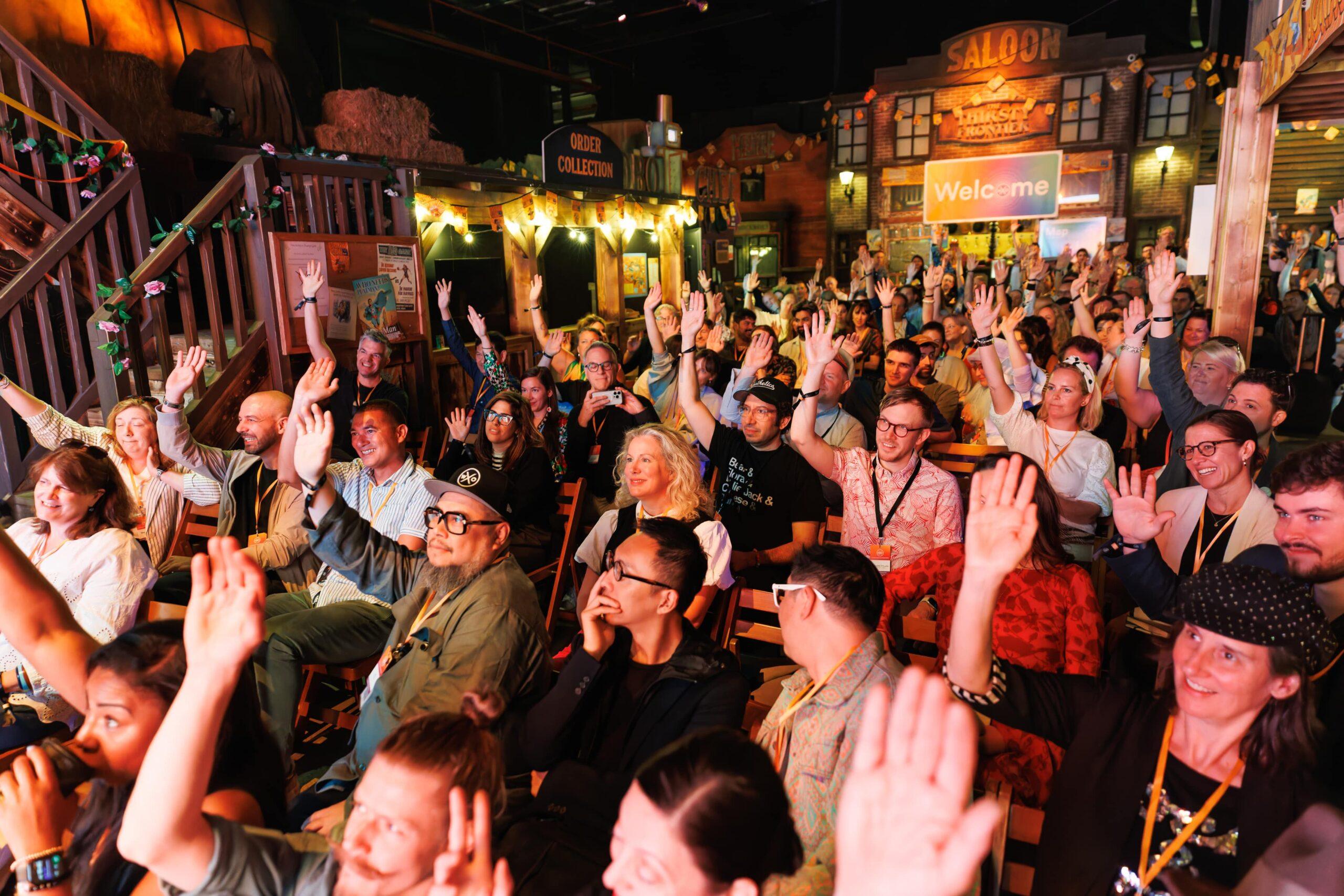Experiential marketing expert, creative director and WXO Founding Member Max Lenderman on why it takes bravery as well as creativity to cut through today’s crowded communications.
I recently spoke at a student-led marketing conference (UNIBE’s MercadExpo) about “the principles of experiential marketing in a phygital world.” I wanted to provide a creative director’s perspective on how to make great brand experiences that meld IRL and URL together in evocative, memorable and effective ways. Here’s my POV:
Great phygital experiences should be “new.”
This statement isn’t very provocative. But it is very important. As humans who are perpetually stuck on a hedonic treadmill, we are preternaturally attracted to new experiences. There’s even a study that shows that new experiences actually makes us happier.
So the more novel and fresh the experience – you know, that “never-been-done-before” cliché that sneaks into RFPs and pitch decks – the more likely it will get noticed. For instance, the Burger King “Stevenage Challenge” and the Corona “Match of the Ages” campaigns that won Cannes Titanium Awards this year.
Great phygital experiences should feel “magical.”
The more intricate the technology is intricated, the more frictionless and seamless it seems. The experience should leave people with a “how did they do that” impression, a suspension of disbelief that creates a deeper involvement and more lasting memory.
I can’t help but think of the Flight Light idea from West Jet that incorporated a plane’s flight trajectory into a child’s nighlight that projected that trajectory onto a bedroom’s ceiling. A more recent example would be another Cannes-winning campaign from Burger King – the “Whopper Detour” – that integrated complex geo-fencing tech with trolling creative for an unforgettable and talk-worthy phygital experience.
Great phygital experiences strive to be “inspirational.”
Good marketing experiences are memorable; great marketing experiences are meaningful. They impart a change in belief and behavior in the intended audience, and if that change is profound enough, they can spark a journey for personal transformation.
An idea from a small spirits brand in Spain called Ruavieja used data from the national statistics database to calculate how much time people had to spend in their lives with those they love the most. The campaign called “We Have to See More of Each Other” sparked a national dialogue and catapulted the brand into the cultural zeitgeist. More importantly, it changed people’s lives for the better. Imagine a marketing campaign that can change perceptions in such profound and actionable ways.
Great phygital experiences should be “helpful”
I could’ve used the term “purposeful” instead, but that may be too heady and opaque. I think helpful is more accessible. There’s a lot of heat around brand purpose in our industry, and brands’ head-long rush to show their purpose creds have been received with mixed results.
On the one hand, people really want brands to take a stand and create solutions for social ills. On the other hand, people feel that brands are just paying lip service at best or purpose-washing at worst. What people are looking for are real-world action that solves real human problems.
That’s why Microsoft won the Super Bowl commercial contest in 2019 when it touted its invention for an adaptive controller. It’s the perfect example of the productization of purpose rather than purpose plaudits and corporate statements. It’s IRL purpose for a URL world.

Ultimately, these principles mean very little without the single-most important component to phygital creativity: courage. The proclivity to take risks, to try something entirely new, to color outside the lines, to strive for recognized originality… these are the elements of great brand experiences and activations. Without the overarching principle of daring, creativity remains underserved. This lesson is certainly well-received by the students entering the game and, hopefully, will be well-heeded by those who are in it.
To get more insights from experts in the Experience Economy like Lenderman – and to be the first to know about our membership programme, events and more – apply to join The WXO here.





